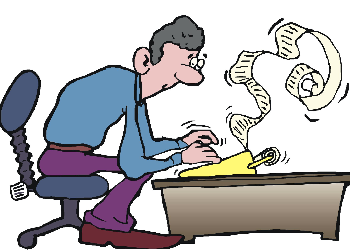By Dan Boudreau
Small business goodwill seems like a great idea until it comes to your balance sheet, then it becomes a figment of your imagination.
The glossary defines goodwill as “an intangible asset generated through high community standing, strategic location, or superior management.” The idea is that a financial amount for “goodwill” is added to the tangible asset value of a business to arrive at a selling price.
As a business owner, you will work many hours to build your business. In theory, this increases the value of your business should you decide to sell it. This textbook assertion is only partly true in real life.
The problem is that banks tend not to recognize or provide financing to purchase goodwill, and even secondary lenders will usually value it much lower than business owners. It’s difficult, and sometimes impossible, to borrow money to finance the goodwill part of a business deal.
If you’re buying a business, you will want to view any goodwill portions with a jaundiced eye and bargain hard to ensure you’re getting maximum value for your money.
As a business owner, it’s easy to understand and empathize with business sellers who ask exorbitant prices for goodwill. Building a business is a labour of love. Small business sellers will often seek more for goodwill; smart buyers will always bargain to pay less for it.
Buyers and sellers will never view the goodwill issue the same way, and it’s not just greed on the part of the sellers. Fact is, most owners will never be paid for the countless hours invested in building a business, and at no time is this more glaring than when they want to sell it.
Smart business owners will actually begin preparing three to five years prior to putting a business up for sale. One way to prepare is to pay more taxes, which is excruciatingly counter-intuitive for any savvy business owner, that is to resist the urge to pay minimal taxes and instead begin to increase the book value of the business by showing more profit. A business that shows a history of taxable profit will naturally be valued higher than the same business showing little or no profit, and it might also support the seller’s claims of value for goodwill.
It seems to me that buyers tend to pay too much for goodwill. I suspect this is because they perceive that acquiring an operating business will be easier than starting and building a business from the ground up. While a business already in motion can save its new owner some headaches, it’s also true that all goodwill can quickly evaporate in cases where a business is tied too closely to the person who previously owned the business.
The bottom line for buyers assessing the value of goodwill is to take a hard look at what you are getting for the price you will pay for the business. If you can’t come up with anything more than making the previous owner feel good about his or her time invested into building the business, ask yourself how good you might feel about making those payments each month once you own the business.
This material is copyrighted. You are welcome to publish this article providing you clearly credit the author, Dan Boudreau, and attach the following statement, in its entirety, with live links back to the RiskBuster Business Plan Oasis website:
“Dan Boudreau is President and CEO of Macrolink Action Plans Inc. and the RiskBuster Business Plan Oasis at http://www.riskbuster.com Writing your own business plan can be easy, fast and fun! Instantly download a free copy of Dan’s popular fast-track business plan template, The Shell, when you subscribe to the RiskBuster Business Plan Insider at http://www.riskbuster.com”


One thought on “Small Business Goodwill is in the Eye of the Beholder”